If you aren’t one of the one in four adults − or approximately 61.5 million Americans − who have a mental illness, chances are you know someone who does. But, supporting a loved one with a mental illness isn’t always easy, and it can sometimes be hard to know what to do. The Mighty asked our readers to tell us the best ways to be an ally for someone who has a mental illness. Knowing how to support them could mean so much more than you know.
1. “They say mental illness isn’t a casserole illness — no one brings over meals. A meal or card after a hospital stay would be nice.” — Lori Allen Bernstein
2. “Acknowledging I have a serious problem. Many people brush off depression because ‘everyone goes through that.’” — Sharon McKinney
3. “Understand that sometimes I need my space.” — Tia Maria
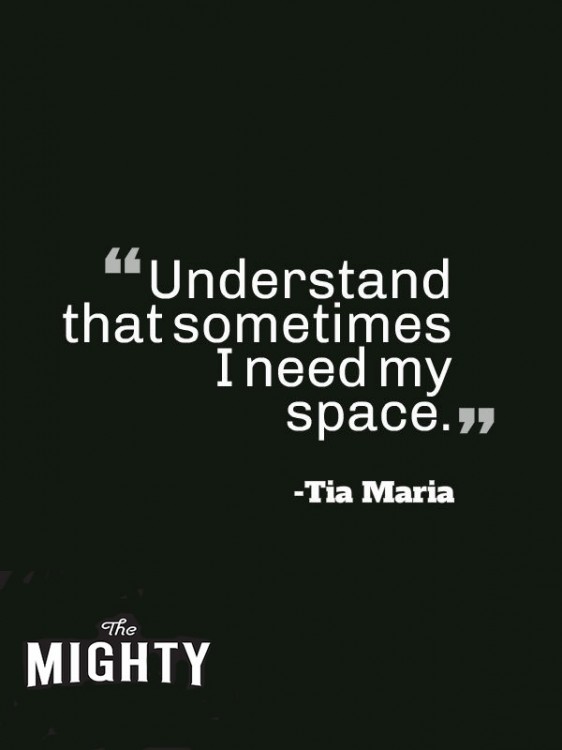
4. “Saying, ‘You are important, you are loved.’ Sometimes, with mental illness of any kind, it’s easy to forget.” — Sam Thayer
5. “My anxiety causes me to question my ability to be loved. Verbal reinforcement is a powerful tool.” — Murrin Elizabeth Brads
6. “Saying, ‘You are not a burden to me.’” — Hope Strickland Russell
7. “You can’t fix me. Let me have bad days.” — Dayna Walls-Cochran
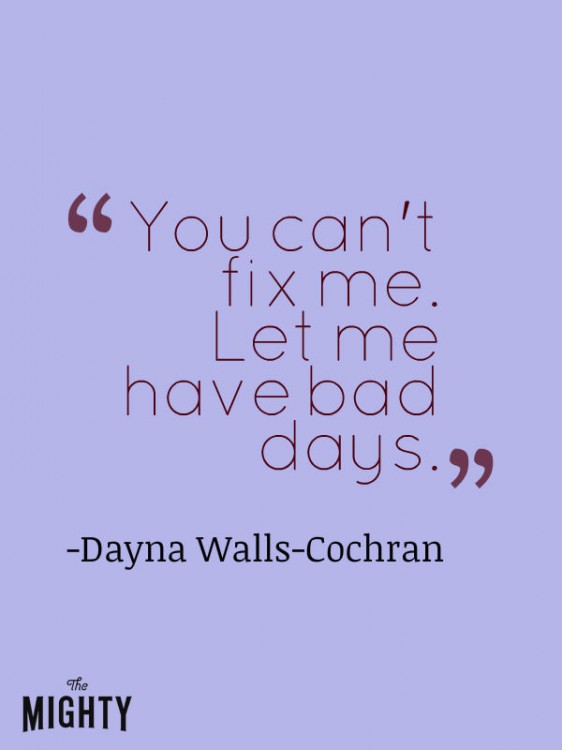
8. “Saying, ‘I cannot claim to know how you are feeling, but I’d like to try to understand. Would you help me?’” — Christine Piltzecker
9. “Saying, ‘I love you.’ Often I feel unlovable.” — Jeni Johnson Brown
10. “Just accept what I say about my brain; your denial of my mental illness only affirms I won’t be accepted.” — Melanie Segal
11. “Understand it’s an illness. It’s like having diabetes or asthma.” — Melissa Cote
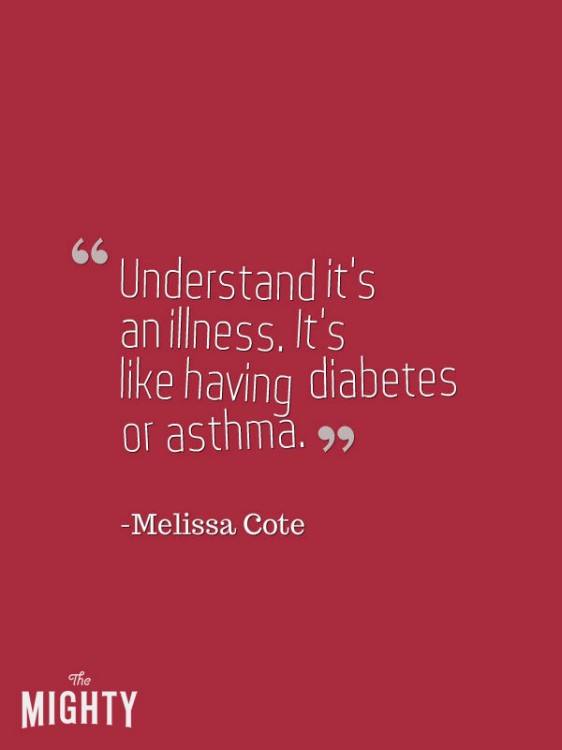
12. “Never, ever brush it off or tell us to get over it. That just reinforces what we already think — that we’re weak and incapable.” — Bekah Paskett
13. “You don’t have to ‘get it’ or ‘accept it’ to accept me. Compassionate acceptance is the best gift you can offer.” — Ross Adams
14. “My husband allows me to just be quiet.” — Amber Scott Guerrero
15. “Don’t use labels as slang.” — Susan Lampton
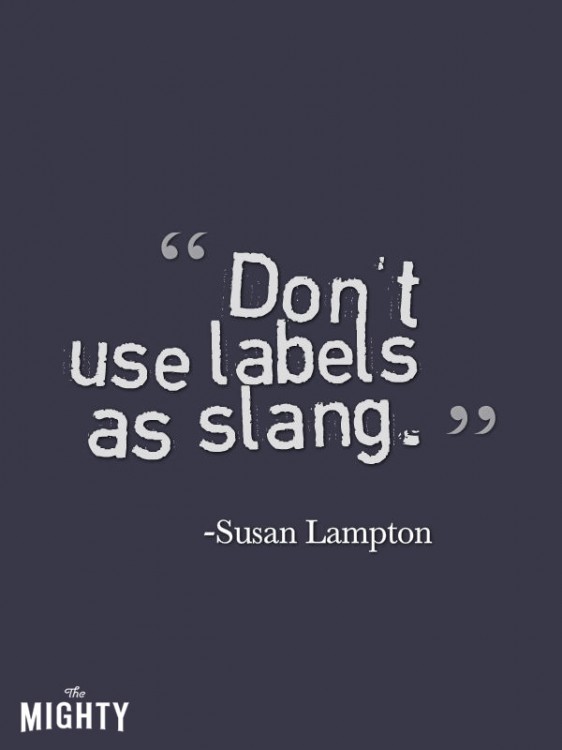
16. “Just a random text with uplifting and encouraging words is always nice. When they’re random, they always seem to come right when needed most.” — Chelsea Fleming
17. “Asking, ‘How can I help you?’” — Sharon McKinney
18. “Don’t offer miracle cures.” — Ingrid Senger-Perkins
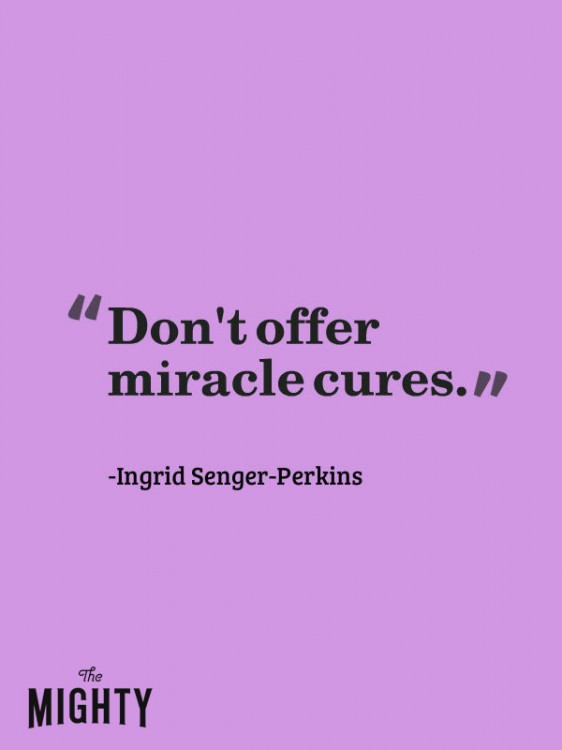
16. “Listening in a completely non-judgmental manner.” — Christine Dahonick
20. “Asking, ‘How are you?’ and meaning it goes along way.” — Laurie Gardiner
21. “Hugs work wonders.” — Manda Ree
22. “Accept and love me as I am, not who I used to be or who I could become.” — Joyce Drush
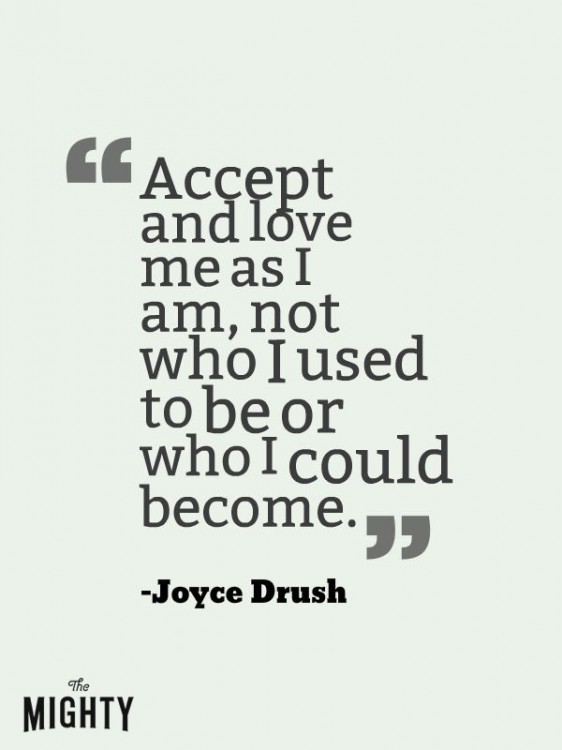
23. “When life gets hard, just be there. Don’t run in the opposite direction.” — Lexie Nooyen
24. “Saying, ‘I hear you. I believe you. This is not your fault.’” — Amy Tenberge
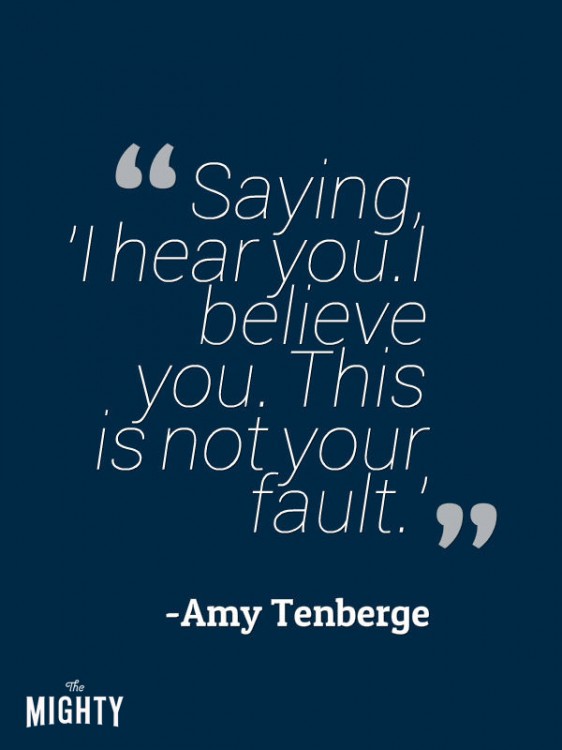
25. “Understand my silence or distance is not lack of caring. I’m not trying to make your life difficult, I’m trying to survive.” — Nicole Ryan
26. “I already know my anxiety and depression don’t have any rhyme or reason, no need to remind me.” — Christine Brown
27. “Treat me like a human.” — Kate Murphy-Frank
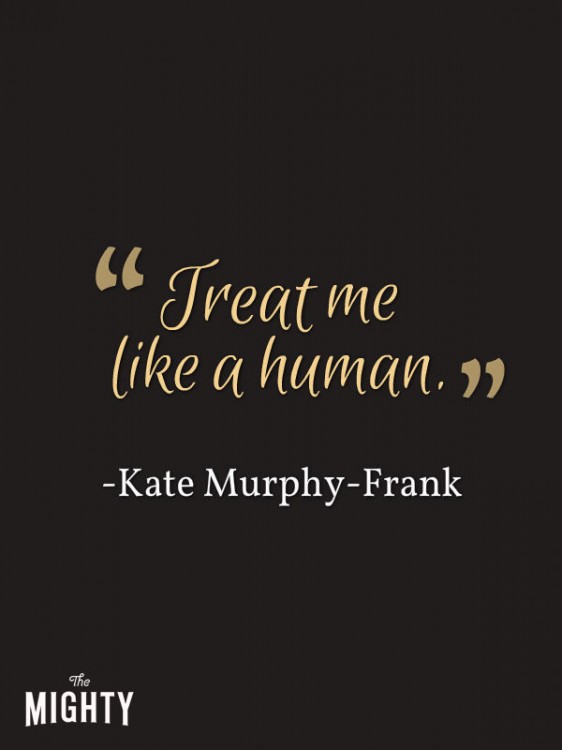
What would you add? Tell us in the comments below.
*Some answers have been shortened and/or edited.

